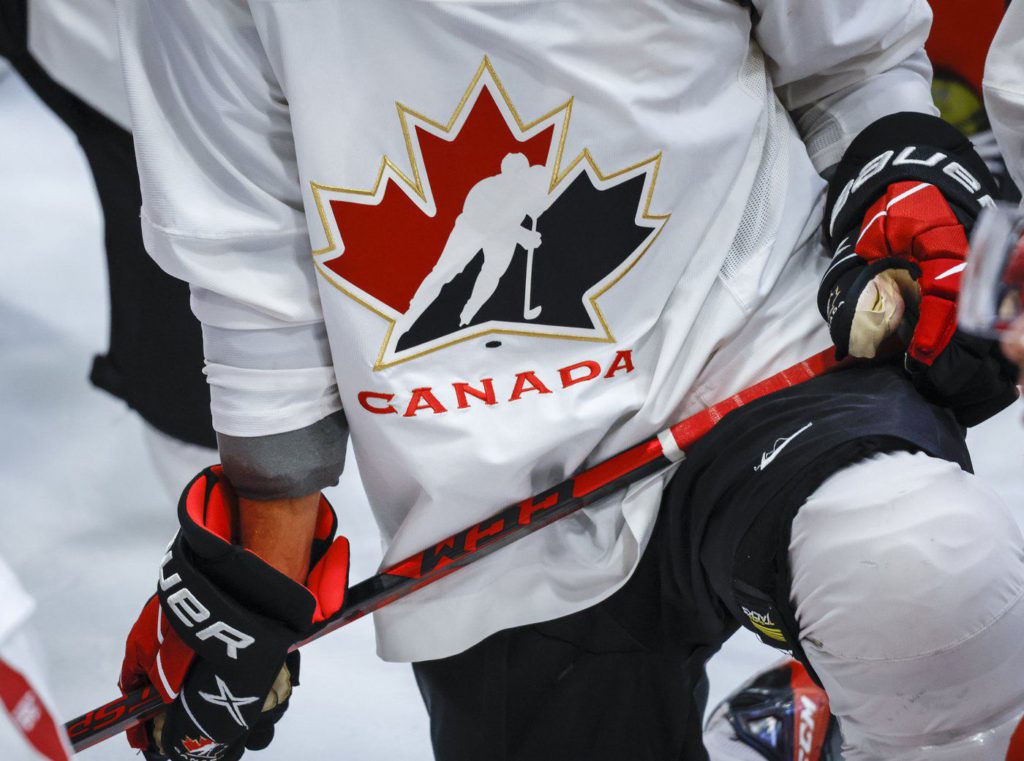
Electing a new board is just the first step in salvaging Hockey Canada, experts say — the new directors will face a major challenge in rebuilding from the top down.
The national sport governing body’s entire board of directors resigned Tuesday after months of scandal, in which sponsors and members alike pulled support over the organization’s mishandling of alleged sexual assaults. Chief executive officer Scott Smith also departed.
It’s a rare occurrence for an entire board to resign at once, said Paloma Raggo, a professor at Carleton University’s School of Public Policy and Administration who teaches philanthropy and non-profit leadership.
“In times of organizational crisis like this, sometimes it’s a solution to preserve and save the identity of that organization,” she said.
But while the resignation is a symbol of immediate change to outsiders, in reality it’s just an opportunity to begin an organizational overhaul that will take more time to implement, said Raggo.
“The initial layer of change has been done. Now we need to address the deep structural change in the organization,” she said.
According to Hockey Canada’s bylaws, nominations for the board must be submitted by members or the chair of the nominating committee at least 60 days before the annual meeting where the election normally takes place, this year scheduled for November.
The nominating committee has postponed the election, which will now take place virtually on Dec. 17. Nominations are due by Oct. 28 and the final list of candidates, provided by the committee after vetting the nominations, will be provided to members Nov. 28.
“These dates, including the election date, have been identified by the Nominating Committee as the necessary time frame for it to perform its duties appropriately,” wrote the committee in an unsigned release.
The bylaws that govern the board can’t be changed until there’s a new board, said Ann Pegoraro, the Lang Chair in Sport Management.
Once that election happens the new board will have two major tasks at hand, she said: finding a new CEO, and undertaking the changes recommended by former Supreme Court justice Thomas Cromwell in his ongoing governance review, which should include the bylaws and other policies.
The external review will help the new board establish its priorities, said Raggo, cautioning that a learning period will be necessary with an all-new roster at the helm.
Pegoraro said some bylaws in particular, such as those governing gifts and power delegation, need to be reviewed. She said the bylaws need to more clearly delineate the role of the board in overseeing the executives.
Raggo said Hockey Canada needs to create a clear whistleblower policy, and added that the bylaws need to be both accessible and enforceable, or else any changes made won’t matter.
Hockey Canada board directors can serve for a maximum of four consecutive two-year terms, and are not eligible for election or appointment to the board for two years after that maximum has expired.
Pegoraro and Raggo both said the term limits should be more restrictive.
Pegoraro said four to six years is more reasonable, so that the board can balance continuity and turnover, and said that after those consecutive terms are over, directors shouldn’t be able to come back for another round.
An ideal board includes not only people who have experience within the field — or the rink — but also people with certain skills and knowledge, said Pegoraro. This might include someone with legal experience, or someone trained in risk management.
Raggo agreed.
“If you keep appointing the same kind of people, you’ll have the same kind of problem,” she said.
There is one optional appointed director position, likely to fill in any skills gaps, said Pegoraro. But she said there should be more appointed or elected positions designed to include specific skills or regional representations, in order to promote a diverse set of directors.
“I think there’s a lot of pressure on them to elect a board this time that is more representative of Canadians,” she said.
In the call for nominations, the committee said ensuring diversity is a critical component of its role: “This means identifying candidates who, if elected, will bring a diversity of gender, ethnicity, culture, and thought to their duties.”
With a new board elected, the challenges will have only just begun, said Pegoraro. Board directors are volunteers, and the already time-consuming job will be even more involved with the necessary work of changing the organization from the inside out.
She predicts that attrition will be an issue for the board during the first several months.
There is also the question at the back of many minds: what if Hockey Canada can’t be salvaged? This is something the new board and the organization’s members will have to consider in the coming months, said Pegoraro.
The bylaws allow for members to dissolve the organization, and Pegoraro said the members will be watching closely for real change at Hockey Canada.
“There’s going to have to be some really key transparent decisions shared with the members to build their confidence,” she said.
This report by The Canadian Press was first published Oct. 12, 2022.




